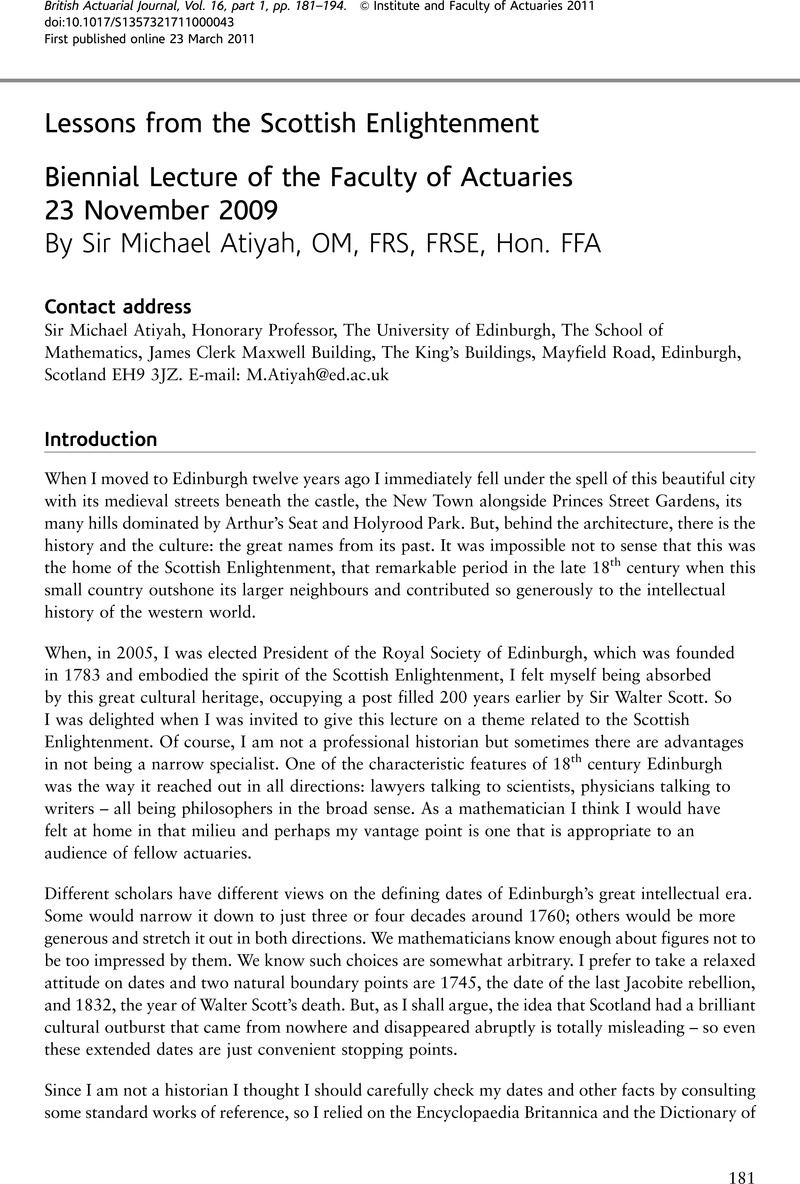No CrossRef data available.
Biennial Lecture of the Faculty of Actuaries 23 November 2009
Published online by Cambridge University Press: 23 March 2011

* David Forfar has reminded me of two Scottish composers with European reputations: Sir John Clerk (1684–1755) and Thomas Erskine, 6th Earl of Kellie (1732–1781).
* Hans Buehlmann has drawn my attention to the parallel role of Calvin in Switzerland. Calvin, like Knox, encouraged primary school education so that the Bible could be read. In both countries, practice was slow to follow legislation, but Scotland appears to have been more diligent. The comparison deserves a more thorough examination, which should also include the Catholic schools.
+ Actually by one of the earlier societies which merged into the RSE.
++ The DNB very diplomatically says that Pringle resigned because of “ill-health”. This is reminiscent of modern Cabinet Ministers who decide “to spend more time with their families”.
* Gray is, in my view, somewhat unfair to Cromwell.